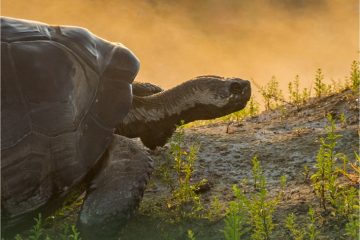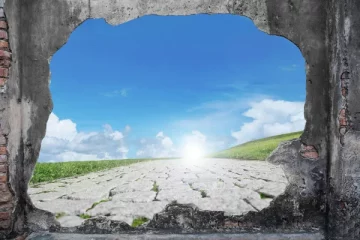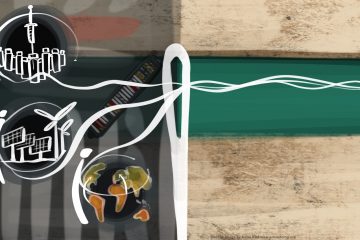A day of encounters, co-organized by the Groningen Research Institute for the Study of Culture and Counterpoint: Navigating Knowledge
4 June 2019 in Groningen, The Netherlands
Discussions about sustainability often focus on questions of health, technology, and economic value. Ecological diversity plays an important role in these discussions as well. However, questions of bio-cultural diversity, often connected to conflicts on a global scale, are still underrepresented in political and public debates. This event is co-organized by the Groningen Research Institute for the Study of Culture (ICOG) and Counterpoint: Navigating Knowledge, and co-sponsored by the Groningen Centre for Religion, Conflict and Globalization. It provides a platform for reflection on what “bio-cultural diversity” means in the context of the humanities. More specifically, the event will explore the diversity of languages as representations of cultural interaction, and implications of the rapid loss of languages around the globe. Losing access to a diversity of languages means losing entire worlds. Here, “language” not only refers to spoken human languages, but also to languages and signs communicated through the arts. It also includes interspecies communication, as addressed in biosemiotics and other approaches that explore the languages of the more-than-human world. By critically engaging the hegemonic power of dominant language cultures, and by strengthening the crucial role of the humanities in these discussions, we want to find new ways of protecting bio-cultural diversity for future generations.
This event is envisioned as a true encounter of perspectives and knowledge systems. It opens with a presentation of Dorine van Meel’s (Amsterdam/Berlin) video work Beyond the Nation State I want to Dream (see image above), followed by a conversation with the artist. Subsequently, the viewpoints of artists, activists, translators of various kinds, politicians, and academics come together to discuss and create new ideas and understandings of bio-cultural diversity. Students will also participate in the conversation with their own ideas and experiences. In addition to presentations and input from various perspectives, the event will comprise of workshops organized around themes chosen by the participants.
Program
9:00 Welcome with coffee and tea
9:30 Short introduction. Presentation by the artist Dorine van Meel, Amsterdam/Berlin, followed by interview with the artist (moderated by Kocku von Stuckrad)
10:30 Coffee/tea break
10:45 Roundtable conversation with artists, activists, translators, politicians, students, and scholars about the topic of the day. Participants talk for ca. 10 minutes, and after that there will be a 30-minute discussion (moderated by Babette Hellemans)
Participants:
- Asghar Seyed-Gohrab, Leiden: “Language and Hegemony: What We Can Learn from Micro-globalization in Earlier Periods”
- Sophia Löwe, artist and Research Master’s student Religion and Culture: “Scholars as Artists and Artists as Scholars: Where Do We Draw the Line and Who Draws It?”
- Piet Devos, writer and literary theorist: “Exploring Multisensory Alternatives to Ocularcentric and Ableist Knowledge”
- Wesley Pechler, Member of the City Council of Groningen, Party for the Animals (Partij voor de Dieren): “Human Hegemony and Anthropocentrism in Current Politics”
- Sven Gins, Research Master’s student Classical, Medieval, and Early Modern Studies, Groningen: “Animal Studies and the Anthropocene from a Long-Term Perspective”
- Whitney A. Bauman, Miami / Berlin: “Dealing with Unearned Privileges”
12:15 Lunch break (vegan lunch provided for participants)
13:30 Introduction and selection of workshops. The workshops will be located in the Marie Lokezaal, as well as in rooms 10 and 11 on Turftorenstraat.
13:45 Parallel workshops on the following themes:
-
This Was Supposed to be the Future: Fragmentation and Loss of Hegemony in the Face of Ecological CatastropheA workshop geared towards discussing what “the future” as a concept meant and now means when facing ecological catastrophe. Which futures that seemed certain now seem fragile? Which social hegemonies are fragmenting? It is a discussion of what has changed in terms of both potentials and certainties when thinking through the future after accepting what is being lost.
Convener: Susannah Crockford - The Hegemony of the Present in the Study of the Past
With the help of two case studies we would like to discuss how contemporary culture and politics, with hegemonic notions such as the nation state, colonialism, othering, binary gender, play a dominant role in the way ideas of the past are perceived, and that religion as opposed to reason is a colonial idea that is being challenged. The two case studies are: Sir Muhammad Iqbal (1877–1938) and Peter Abelard (1079–1142).
Conveners: Babette Hellemans & Asghar Seyed-Gohrab - Religion and Queer Theory
This workshop deals with heteronormativity in biblical interpretations. It starts with showing a 50 minute documentary film called “Fish out of Water,” which deconstructs the 5 “clobber passages” used to discriminate against LGBTQ persons within the Christian tradition (and Judaism to a lesser extent). Subsequently, the participants spend time with Q&A.
Convener: Whitney A. Bauman - Translation, Language, and Signs: Hegemonies in Interactions of Knowledge
What is gained and what is lost when we translate from one language into another? What happens when languages die out? How does hegemony enter in when we translate nonhuman languages into human languages? Can language we nonvocal? Is art a system of knowledge, signs, and communication that can be translated into human and nonhuman languages? These are some of the questions this workshop wants to address and discuss with the participants.
Convener: Kocku von Stuckrad
15:15 Coffee/tea break with snacks
15:45 Report back from the workshops to the plenary group
16:15 Final plenary discussion about what has come up during the day, what the most important issues are, and how to proceed from here (moderated by Whitney A. Bauman)
17:00 End of program
Location
University of Groningen, Harmony Complex
Marie Lokezaal
Oude Kijk in ‘t Jatstraat 26
9712 EK Groningen
+31 50 363 5901
Map and how to get there
Registration and Questions
Participation is free of charge. We appreciate registration, though, so that we can inform participants about changes of the program and inquire about themes they want to address (or have addressed) during the workshops. For registration, please send an email to [email protected], giving your name, email address, and (if you want) your background and profession. For any questions you may have about the event, please also contact this email address.
Thank you!
For the most recent version of the program, please check back at this website or sign up for our Newsletter. Feel free to spread the news, link to this website, or download the official flyer.



